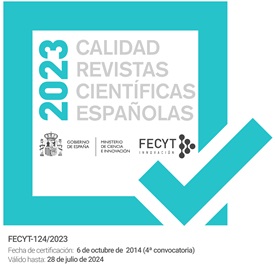In this study we critically review the internal procedures of the accounting community for generating and disseminating knowledge. We contend that academic journals on accounting research are scarce, publish few articles and apply high rejection rates, and the review process is lengthy and expensive. Additionally, an academic elite has unparalleled predominance in comparison to other business disciplines, reflected in an unusual share of published articles with authors affiliated to a small number of academic institutions, and the predominance of certain topics and methodologies. The discipline does not allow the collaborative, iterative and flexible features of innovative knowledge communities. The discipline's internal procedures favour restriction, control, slowness, and expiration, rather than participation, speed and renewal. They are ill suited for advancing knowledge and bode badly for successful research. As a result, accounting academics present low research performance and the discipline is facing steady decline. More importantly, the discipline is handicapped in producing innovative knowledge able to contribute to critical research and long term social well-being.
We also focus on the Spanish institutional situation, arguing that Spanish requirements for reaching tenured positions are difficult for accountants to meet.
We highlight the need to raise awareness of the problem and change the procedures.
En este estudio hacemos una revisión crítica de los procedimientos vigentes en la comunidad académica contable para la generación de conocimiento y su publicación. Exponemos que hay pocas revistas académicas para publicar la investigación contable, que éstas publican pocos artículos, aplican elevadas tasas de rechazo y el proceso de revisión es lento y costoso. Además, hay un predominio de una elite académica sin precedentes en otras disciplinas de empresa, lo cual se refleja en un mayor porcentaje de artículos pertenecientes a autores afiliados a un pequeño número de instituciones académicas, y el predominio de ciertos temas y metodologías. La disciplina no presenta los rasgos de colaboración, interactividad y flexibilidad propios de las comunidades dinámicas e innovadoras en la producción de conocimiento. El funcionamiento de la disciplina está más orientado al control que al avance del conocimiento. Los procedimientos seguidos en la disciplina no son los más apropiados para favorecer el éxito en la investigación. En consecuencia, los académicos contables presentan poca producción investigadora y tienen dificultades para desarrollar con éxito una carrera investigadora. Lo que es aún más importante, la disciplina ofrece pocas posibilidades de generar investigación crítica en cuestiones sociales y medioambientales.
Este trabajo analiza también la situación institucional en España, aduciendo que los requisitos exigidos para alcanzar posiciones de estabilidad académica son difíciles de conseguir para los académicos que se dedican a la contabilidad.
Ponemos de relieve la necesidad de tomar conciencia del problema, como primer paso para cambiar el funcionamiento de la disciplina.
“The authors are grateful to the University of Barcelona for funding this research”.






